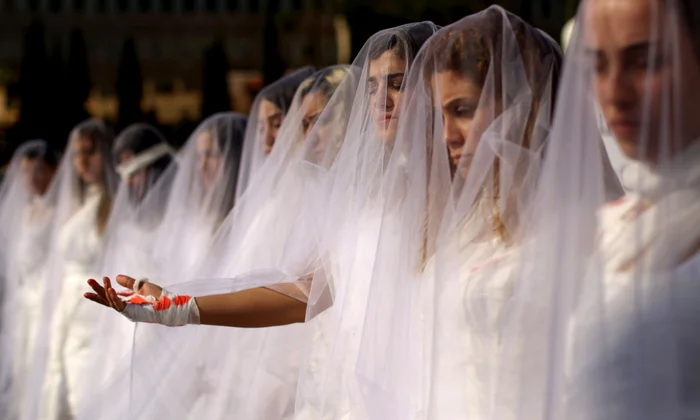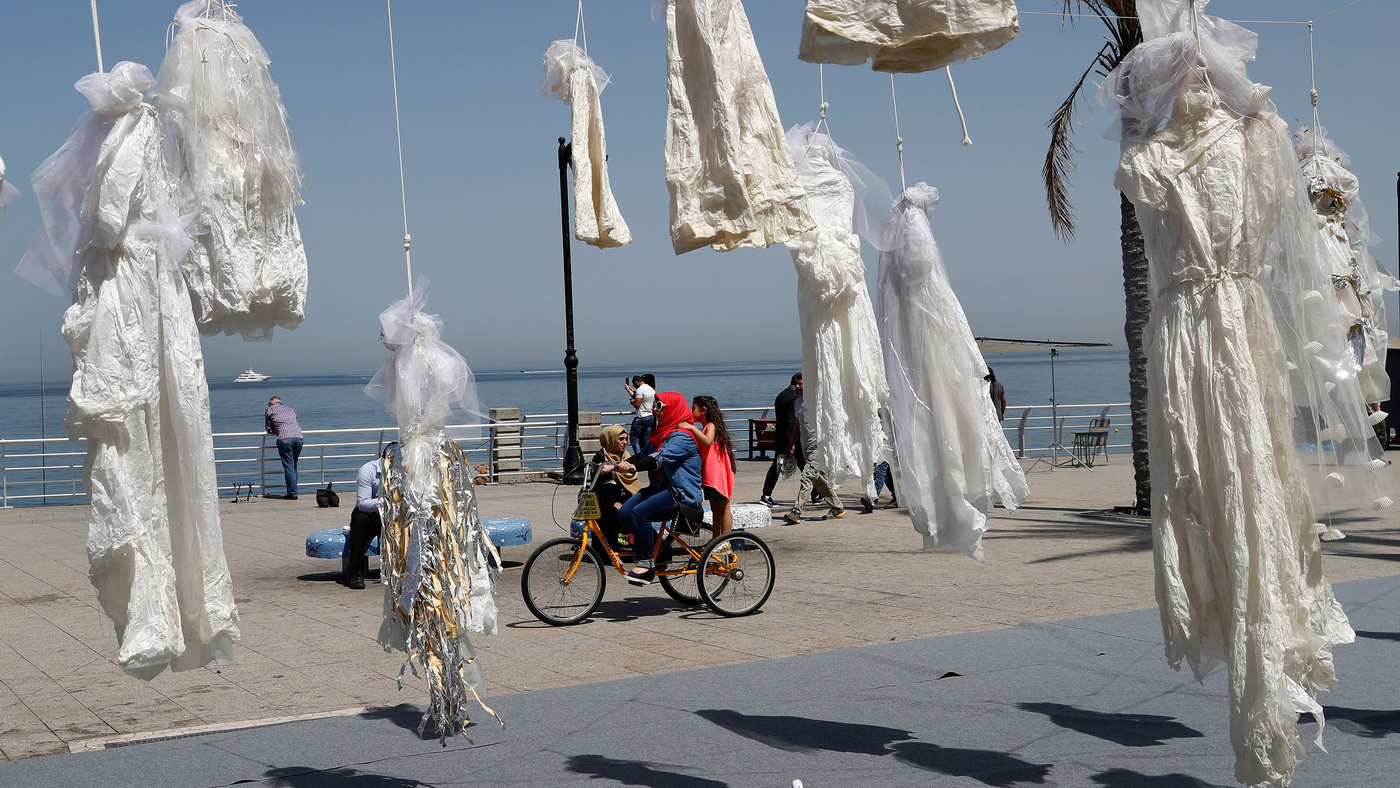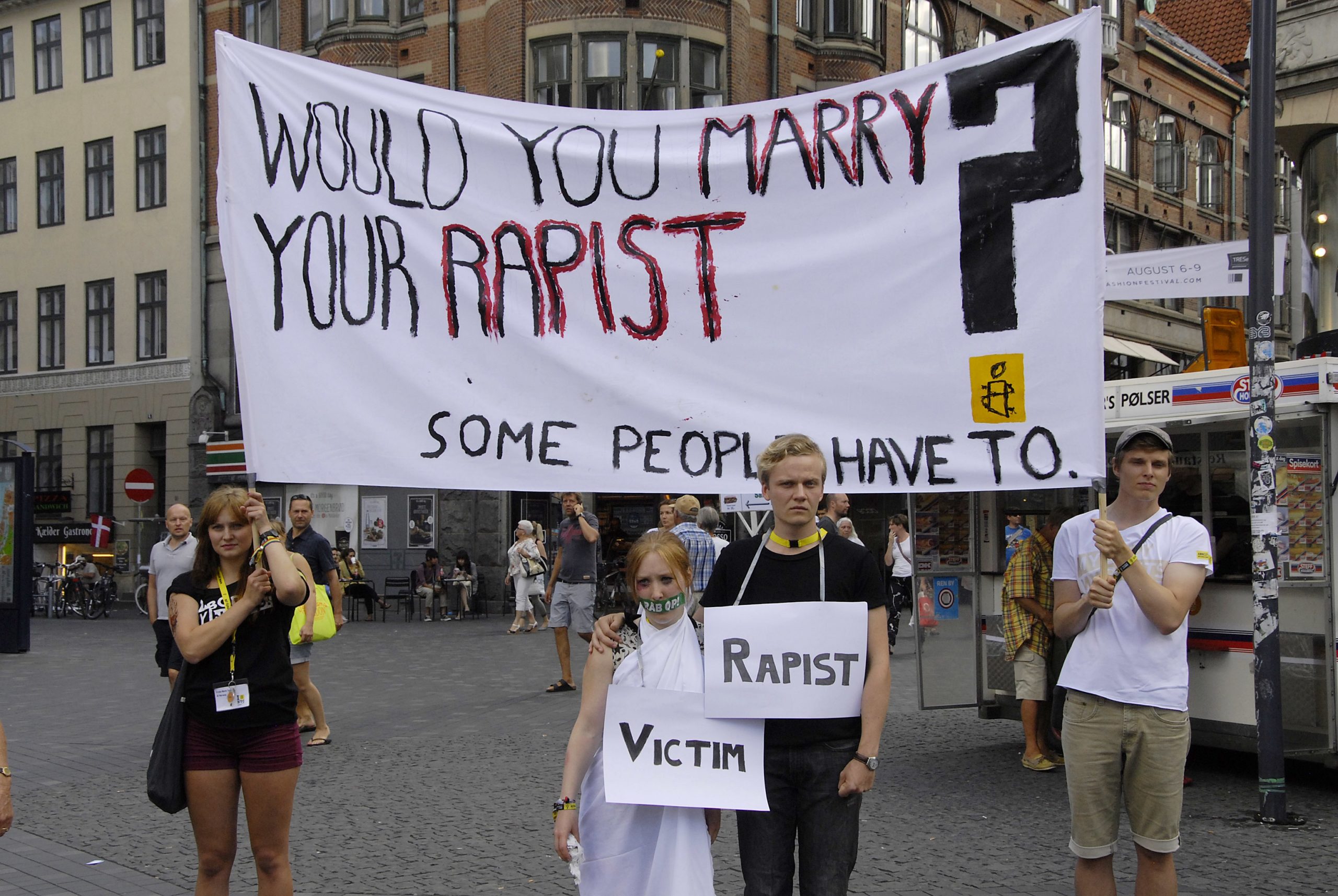A story has made it to the news cycle about a week ago about an Afghan woman who is marrying the man who raped her. Via MSNBC:

Gulnaz, who uses one name, has been in an Afghan prison cell for about two years. She says she only has one choice if she wants to bring dignity back to her family and tribe: She must marry the man who forced his way into her home, tied her up, and then raped her.
The man was Gulnaz’s cousin’s husband, and the humiliation continued a few months after the attack, when Gulnaz finally got the courage to tell Afghan police what had happened. Instead of getting justice, she was accused of adultery and sent to prison.
[…]
Her daughter, Moskan, a result of the rape, lay sleeping on a bed nearby ““ she was born on the floor of Gulnaz’s prison cell.
According to Gulnaz, she was initially given a two-year prison sentence, so she appealed. The court of appeals refused to accept her accusation of rape, she said, and raised her sentence to 12 years. They didn’t believe she was raped because they told her that a woman couldn’t get pregnant after her first sexual encounter, so therefore she must have had a consensual sexual relationship with her accuser, they told her.
Firstly, according to the BBC, Gulnaz’s release was not conditional on her marrying her rapist, this is “simply” something she is doing because of the perceived shame involved. Secondly, I feel that I don’t need to go into just how fucked up this situation is — there’s enough good commentary out there about this.

What I find most telling about this atrocity is how it makes whitewashing the Bible that much more difficult. One of the most infuriating things I see is religious apologism that performs contortions on Biblical analysis to make excuses for the barbaric laws that are found in, say, Exodus. It usually involves a healthy bit of making-stuff-up and some textual “analysis” that reads up as down. But the truth is that most of the horrible institutions mentioned by the Bible exist in a reasonably similar form today — so we only need to look at OUR world to give lie to the idea that these institutions were “more benign than the skeptics think”.
For marrying your rapist, the passage is Deut 22:28-9: “If a man happens to meet a virgin who is not pledged to be married and rapes her and they are discovered, 29 he shall pay her father fifty shekels[a] of silver. He must marry the young woman, for he has violated her. He can never divorce her as long as he lives.” The whitewashing usually comes in the form of:
- Saying that it refers not to rape but consensual sex (example)
- Assuming this marriage is not mandatory and obviously only goes ahead with the victim’s consent (example)
- Saying that this is for the protection of the woman because otherwise she wouldn’t have any support at all from nobody wanting to marry her in that kind of society and don’t you morons see how progressive it is? (example)
On the first one, this is a matter that secular Biblical scholars are best equipped to decide, let me know if you know the consensus. To me it seems doubtful and more likely to be wishful thinking on behalf of those interpreting — but it could go either way. What’s interesting is that the second link in the list above shows the Talmud as taking it for granted that the passage refers to rape.
But of course it’s the other two points that Gulnaz’s case sheds light on. I mean sure, she’s “choosing” to marry her rapist so how is this case in Afghanistan any different from the milder, more humanistic version of Deuteronomy where the marriage isn’t forced? And on the third reply, Gulnaz is probably making herself much better off socially and financially by going through with the marriage. Why not applaud the Afghan system for being so socially progressive? You might retort that the Afghan system was the norm in Biblical times and they didn’t know any better — but my argument is against those who would claim that the Bible is a divine moral code. The case of Gulnaz shows that the excuses given for Deuteronomy are just that — excuses. If this law were indeed followed in Biblical times it was probably just as brutal as in Gulnaz’s case.
A similar thing can be done with the discussion on slavery. The Bible very explicitly condones and regulates slavery. Here, the standard whitewashing is to say that it was the “humane” version, more like “indentured servitude” for not paying off debts. You couldn’t kill slaves and you had to let them go every 7 years. How dare you compare this to Real SlaveryTM? (Example.) The most obvious problem with this is that it talks only about the institution of Israelite slaves and ignores the institution of Canaanite slaves which were to be captured and worked until they die with none of these “humane” rights.
But again the easiest way to see through the whitewashing is just to look at some modern cases. For instance, have a read about the conditions of indentured servants in India, where up to 10 million work in these conditions. It’s true, they’re not released after 7 years like Israelite slaves were supposed to be. But otherwise it’s pretty similar.
The world today proves just how provincial the Biblical laws were — it is the most valuable testimony against any form of whitewashing.





0 Comments